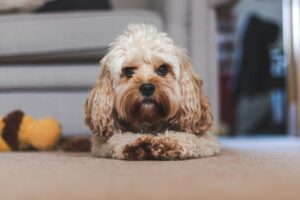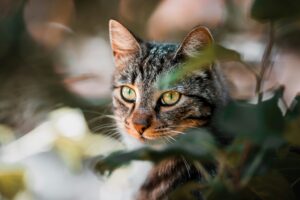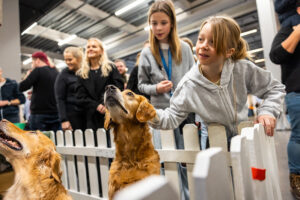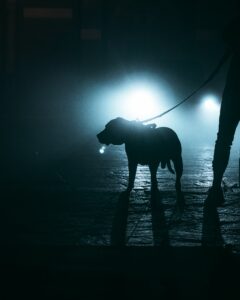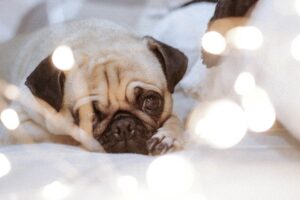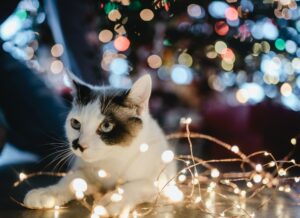Han banade väg för ekotrenden för husdjur
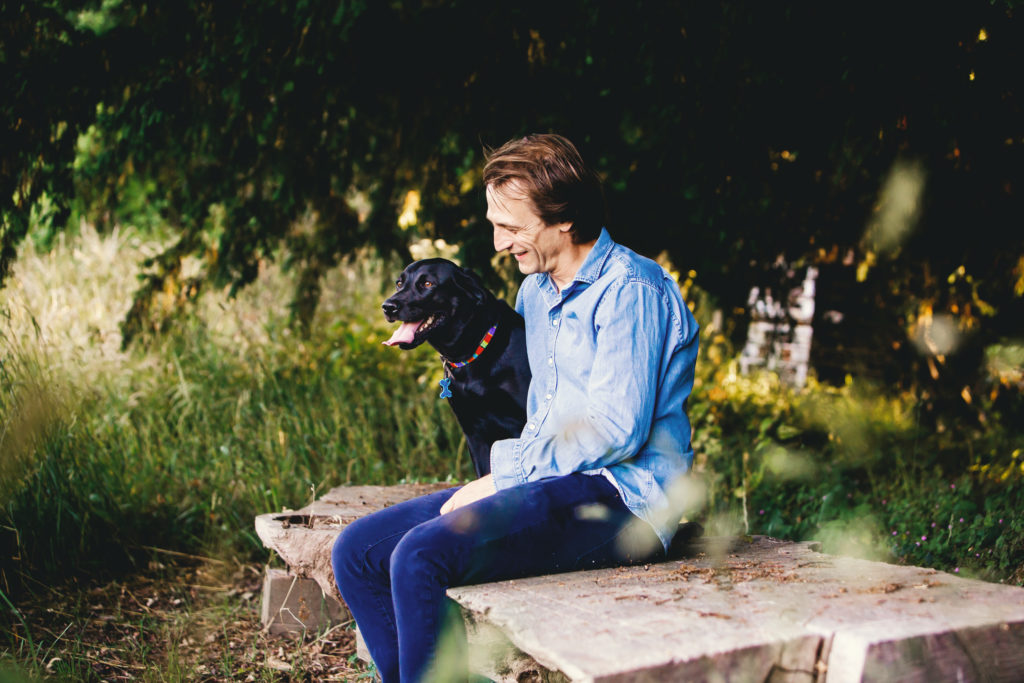
George Bramble är grundaren av Beco, ett prisbelönt brittiskt husdjursföretag med mottot ”Älska din hund, älska vår planet”. Vi har pratat med George om framtiden för hållbara husdjursprodukter.
[Please scroll down for interview in English.]
Du var en pionjär inom hållbara husdjursprodukter, vad fick dig att gå den vägen redan 2010?
– Jag studerade geografi och miljövetenskap på universitetet och har alltid haft ett intresse för miljö. Jag visste redan som ung att jag ville starta eget företag och i slutet av mina studier insåg jag att mitt företag skulle behöva gå emot strömmen och jobba för att minska påverkan på miljön. Jag har dessutom alltid älskat husdjur och växte upp med hundar. 2008 var vi mitt uppe i en ekonomisk kris. Jag undersökte marknaden kring hundprodukter och såg stora möjligheter för ett varumärke som som sätter hållbarhet först. Spola fram tio år och jag är otroligt glad att jag lyckades kombinera min passion för hundar och miljön.
Vad har varit den största utmaningen inom husdjurssegmentet när det gäller hållbarhet?
– När vi lanserade var den största utmaningen att hållbarhet inte var på agendan. Det fick inte alls samma uppmärksamhet i media som det får idag. Vi blev utskrattade av vissa djuraffärer och sågs generellt sett som alldeles för ”smala”. Det har varit en otrolig utveckling de senaste tio åren, vi har kommit en lång väg och nu är hållbarhet mer aktuellt än någonsin.
Har det faktum att du själv är en hundägare ändrat din syn på miljön?
– Absolut, det har fört mig närmre naturen. Ända sedan min labrador Tarka kom till familjen har jag börjat gå på längre vandringar, vistats mer på landet och blivit mer uppmärksam på nedskräpningen i naturen (Tarka är en hungrig hund som äter lite vad som helst…). Att vara mer utomhus har även gjort mig uppmärksam på all plast i naturen och hur det påverkar vår miljö. Jag har verkligen börjat uppskatta naturen och den miljö vi jobbar med att bevara.
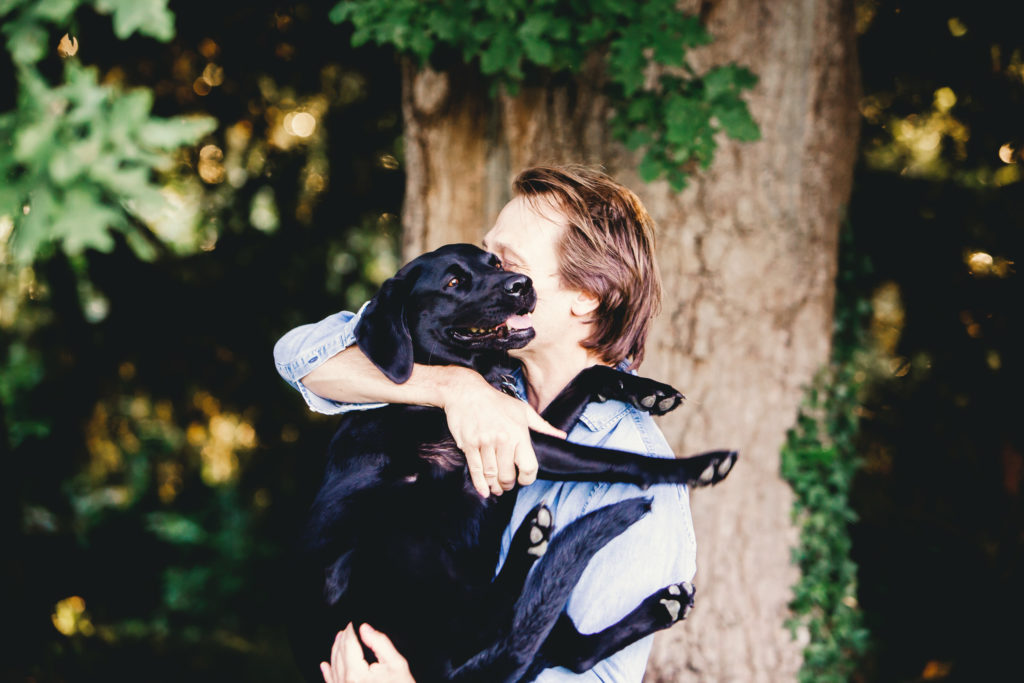
Ni använder återvunna plastflaskor i era hundleksaker, vilket hindrar dem från att hamna i havet. Vad ska hundägaren göra med leksaken när den är sönderlekt?
– Våra hundleksaker är 100% återvinningsbara. Så fort din hund har lekt klart med den kan du dela upp delarna och kasta i din vanliga återvinning. Vi jobbar för att ta fram produkter som kan passa in i kretsloppet och användas om och om igen.
Varför har ni bytt namn från Beco Pets till Beco?
– När vi lanserade kände vi något naivt att vi behövde ha med ordet ”husdjur” i namnet för att få folk att förstå vår produkt. Nu har vi utökat vårt sortiment till mat, bajspåsar, leksaker och accessoarer och folk kallar oss bara Beco ändå. ”Be Eco” blir Beco och vi hoppas att det är tydligt.
På vilket sätt tror du att coronakrisen kommer ändra husdjursägares beteende och konsumtion?
– Jag hoppas att den gör det. Coronaviruset har varit fruktansvärt på så många sätt, men en av de positiva följderna har varit att hela planeten tvingats stanna upp och fundera över hur vi lever. När karantänen startade minskade utsläppen och har sedan dess legat på de lägsta nivåerna på flera decennier. Naturen har fått en chans att återhämta sig. Vi har sett flockar av rådjur i Londons förorter och delfiner som återvänt till Englands södra kust. Jag hoppas att den här stunden av reflektion ger oss inspiration att ta hand om miljön.
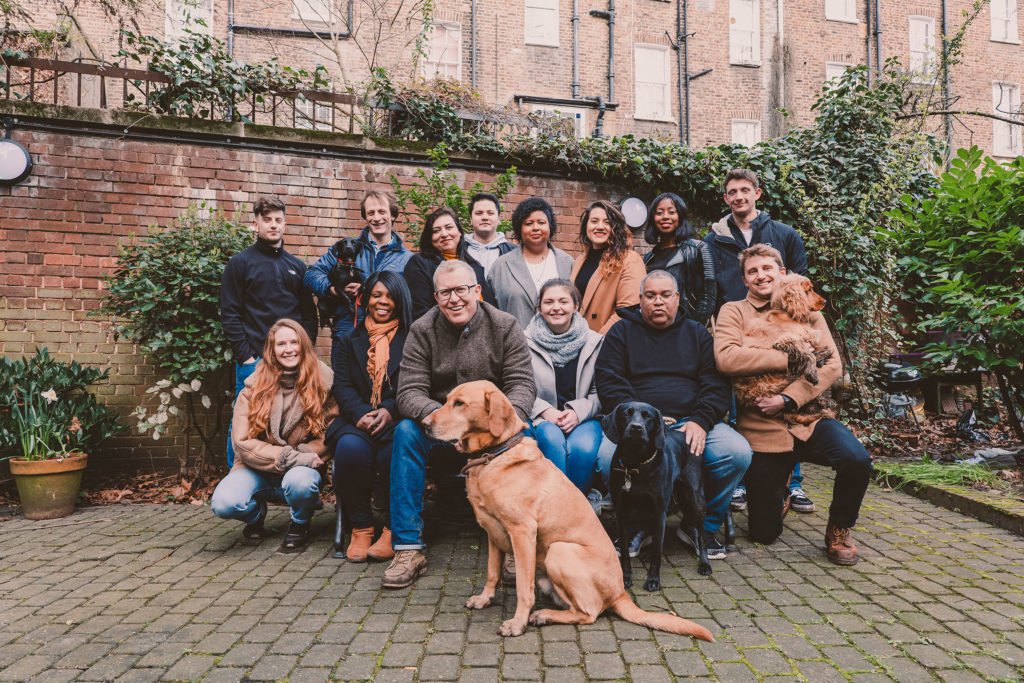
Många hundfoderföretag använder mer och mer grönsaker i sina produkter och vissa nordiska företag tar fram helt växtbaserat hundgodis. Är det något ni funderat på?
– Det har vi absolut. Den svenska marknaden har varit fantastisk för oss. Alla våra produkter går att köpa på vår hemsida och hos återförsäljare i hela Sverige. Vi har insett att vissa hundar gillar kött och vissa gillar grönsaker så vi utvecklar våra recept med ett öppet sinne. När vi väljer kött väljer vi bara från etiska och hållbara återförsäljare. Vi utvecklas ständigt och växtbaserat godis är ett väldigt intressant område för oss, så håll utkik.
Ni har precis lanserat en kollektion nya matskålar i bambu som ser väldigt annorlunda ut från er originalskål, Beco Bowl. Berätta mer!
– Våra nya Beco Bowls är fortfarande gjorda av samma bambumaterial men vi har sett över designen för att passa en bredare målgrupp. Vår originalskål är fortfarande väldigt populär men vi lanserar nu en klassisk modell med mönster som för tankarna till naturen. De är minimalistiska och kommer förhoppningsvis tilltala en annan typ av kunder. ”Honeycomb”, ”Ocean Waves” och ”Midnight Blue” är mönster som får dig att tänka på den vilda naturen.
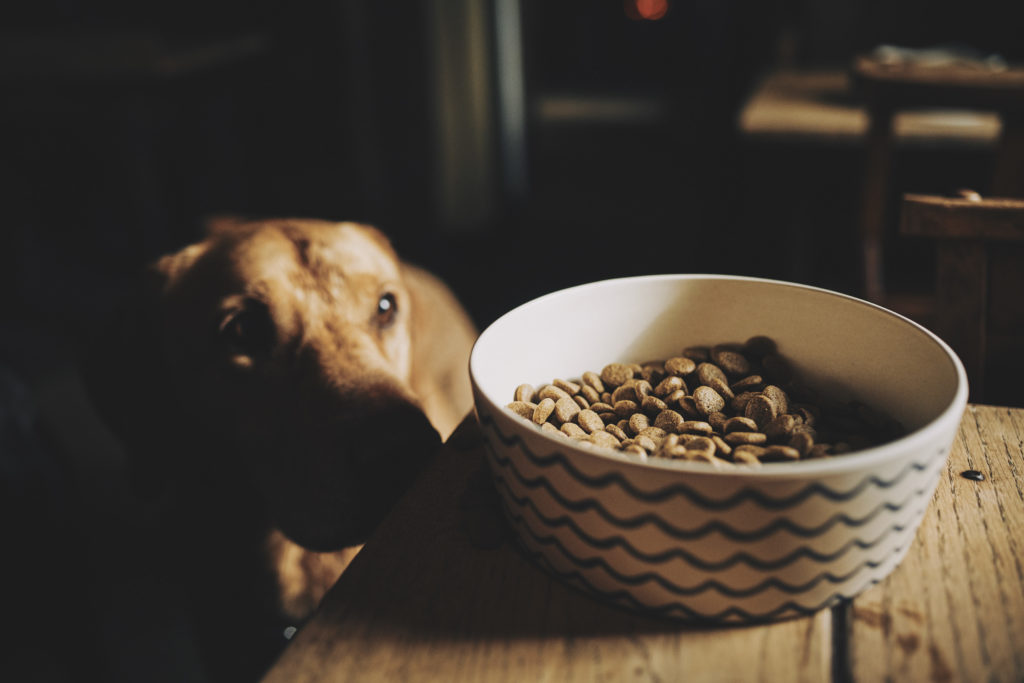
Vilka hållbara initiativ ser du i Becos framtid?
– Vi vill kavla upp ärmarna och fortsätta jobba hårt. Vi har städat stränder, hållit föreläsningar i skolor om att städa upp efter din hund och sprungit halvmaraton för miljövänliga ändamål. Vi håller just nu på att organisera en bergsklättringsexpedition i Skottland för vår kommande insamling 2021. Det kommer att sändas i våra sociala medier så håll utkik där. Kanske kan nästa välgörande äventyr bli en nordisk vandring!
Interview in English.
He paved the way for the eco-trend for pets
Petit Paper: You were a pioneer in sustainability when it comes to pet products, what made you choose that path back in 2010?
George Bramble, Founder of Beco: I studied geography and environmental sciences at university, and always had a passion for the environment. I also knew from a young age that I wanted to run my own business, but at the end of my university course, I knew that what I started had to go against the traditional grain of business and focus on reducing environmental damage. I’d always loved pets, and I grew up with lots of dogs around. Back in 2008, we were also in an economic recession. I looked at the dog product market and thought there were huge opportunities for a brand that put sustainability at the heart of what it did. Fast forward 10 years, and I see myself as very lucky having combined my two passions, for dogs and for the environment.
Petit Paper: What has been the main issue in the pet business when it comes to sustainability?
George: When we launched, our biggest challenge was that sustainable living generally wasn’t on people’s radars. It didn’t enjoy the media coverage it does today or the mass appeal. We were laughed out of some pet shops and were generally considered too ’niche’. It’s been amazing to see the transformation that has taken place over the past 10 years. We’ve come a long way and, now more than ever, living sustainably is very much at the forefront of people’s mind.
Petit Paper: Has being a dog owner changed the way you care about the environment?
George: Absolutely, it has bought me closer to nature. Since my dog, Tarka, who’s a black Labrador, joined our family, I have been on more hikes, seen more countryside and am more alert to litter on the ground (as she’s often hungry and will eat anything!). Being out and about with Tarka has made me aware of the issues around waste plastic and the impact it is having in nature. She’s also bought me closer to nature. So, through finding myself immersed in nature more often, I have developed a greater appreciation of the landscapes we are working to preserve.

Petit Paper: You use recycled plastic bottles in your dog toys, which prevents them ending up in the ocean. What do you suggest the dog owners do with the dog toy after it has been used up?
George: Our dog toys are made from recycled plastic and, in turn, are 100% recyclable. Once your dog has finished with their toy, you just need to separate the panels and pop it in with your regular recycling. We aim to create products that can fit into the circular economy and be repurposed over and over.
Petit Paper: What made you change your company name from ‘Beco Pets’ to just ‘Beco’ recently?
George: When we first launched, perhaps rather naively, we felt that we needed ”pets” in the name so everyone knew instantly exactly who our products were for. Now we have expanded our range into food, poop bags, toys and accessories, and people tend to call us “Beco” anyway. So we felt it made more sense to drop the “pets”. Beco is true to our mission. “Be eco” folds nicely into “Beco” and we hope this comes across.
Petit Paper: In what way do you think the Corona crisis will change pet owners’ behaviour and consumerism?
George: I hope it does. The impact of the Coronavirus pandemic has been devastating in so many ways. One of the few positives has been that it has forced the entire planet to stop, take a minute, and think about the impact we are having. Since lockdown started, pollution has been at its lowest levels in decades and nature has had a chance to recover. We have seen herds of deer grazing in suburban London and dolphins returning to our southern shores. I hope that this time of reflection and seeing nature as our grandparents did will inspire everyone to look after it.

Petit Paper: Many dog food companies use more veggies nowadays and some companies in the Nordics are even launching 100% vegetarian dog treats. Is that something you are looking into as well?
George: We are, indeed. We are delighted that the Swedish market has been great for us. You can buy all our products on www.becopets.com and our products are available in retailers throughout Sweden. We have found that some dogs love meat and some dogs love vegetables, so we’re approaching our recipe development for treats with an open mind. When choosing meat, we always ensure it’s sourced ethically and sustainability. We’re constantly exploring and looking for the next step in sustainability and plant-based treats is an area of real interest to us, so watch this space.
Petit Paper: I see you have just brought out a range of sustainably made bamboo bowls that look very different to the original Beco Bowls with the wave design. Could you tell us a bit more about these?
George: Our new Beco bowls are still made from the same hardy bamboo as the originals and we revisited the design and make sure we were offering something for everyone. Our original bamboo bowl is still very popular, so to complement it, we’ve now launched a classic shape with prints that bring us back to nature. They’re quite minimalist in design, so we think they appeal to a slightly different customer, too. ‘Honeycomb’, ‘Ocean Waves’ and ‘Midnight Blue’ are patterns all designed to remind you of the wilderness as you serve up your dog’s dinner!

Petit Paper: What kind of sustainable initiatives do you see for Beco in the future?
George: We love to roll up our sleeves and get our hands dirty. We’ve cleaned beaches, held tutorials in schools about cleaning up after dogs, and run half marathons for environmental causes. We’re in the process of organising a mountain climbing expedition in the Scottish wilderness for our next fundraiser in 2021. It’ll be broadcast on our social channels so worth tuning in. Maybe to support you, we might try a bit of Nordic walking!
George Bramble is the Founder of Beco, an award-winning British company based in London. Their motto is ‘Love your dog, love our planet’. They are constantly seeking innovation that will make their products more sustainable. The range at Beco has been growing steadily since the company formed in 2009 when the founders started selling their iconic and sustainable bamboo-based dog bowl, still a perennial bestseller. All Beco products are designed in Great Britain. The company believes that the foundations of any great product are selecting the right materials. Beco is aiming to raise the bar for the welfare standards in its protein sources for its dog food. All its chicken is free-range, the fish recipe includes only Marine Stewardship Council-certified fish, and transparency in food provenance is of high importance in the fast-growing ethical pet-food sector of their business. Beco is also one of the world’s leading compostable and biodegradable poop bag businesses, with Beco poop bags exported around the world to more than 50 countries. Beco’s range of dog toys also aims to be more environmentally friendly with their rubber toys sourced from sustainably tapped natural rubber and a soft-toy range using materials made from recycled plastic bottles, helping to create a market for recycled plastics to help prevent plastics ending up in our oceans. They even recycle the cardboard boxes in their warehouse into packaging for all their shipments.
